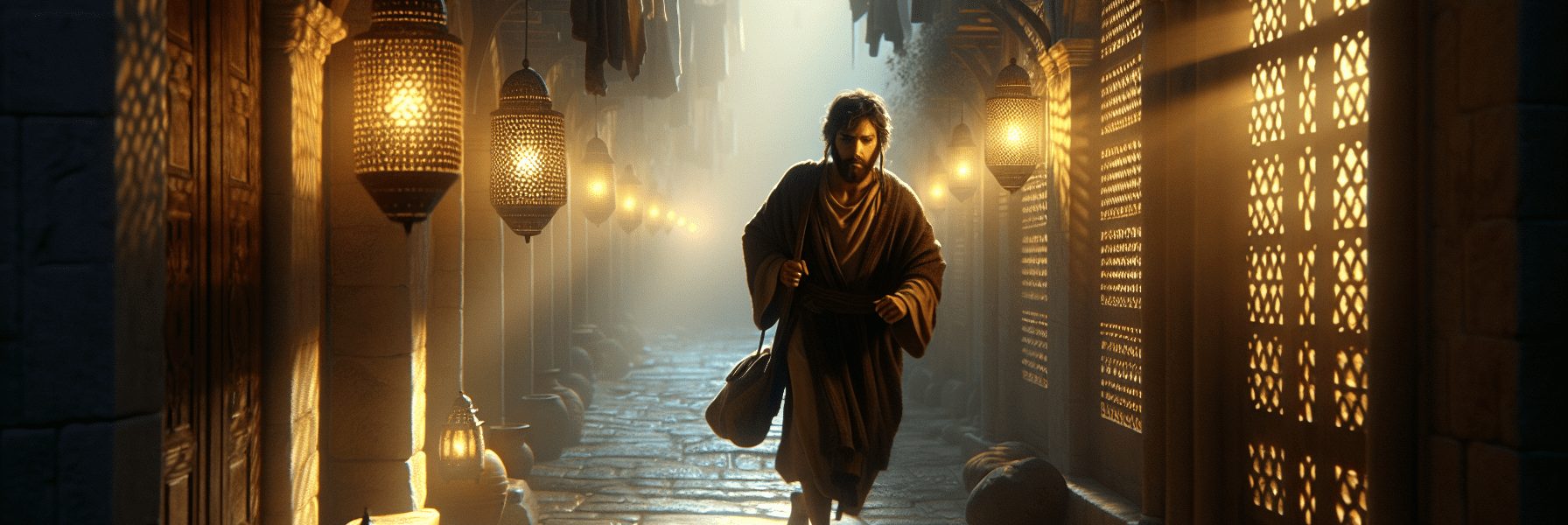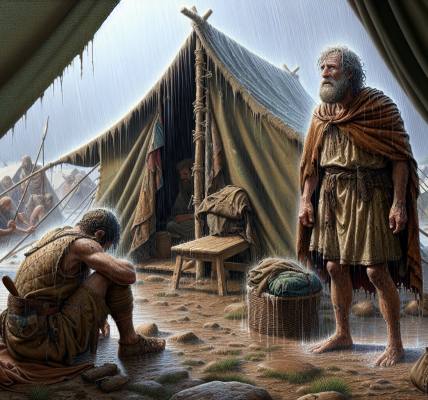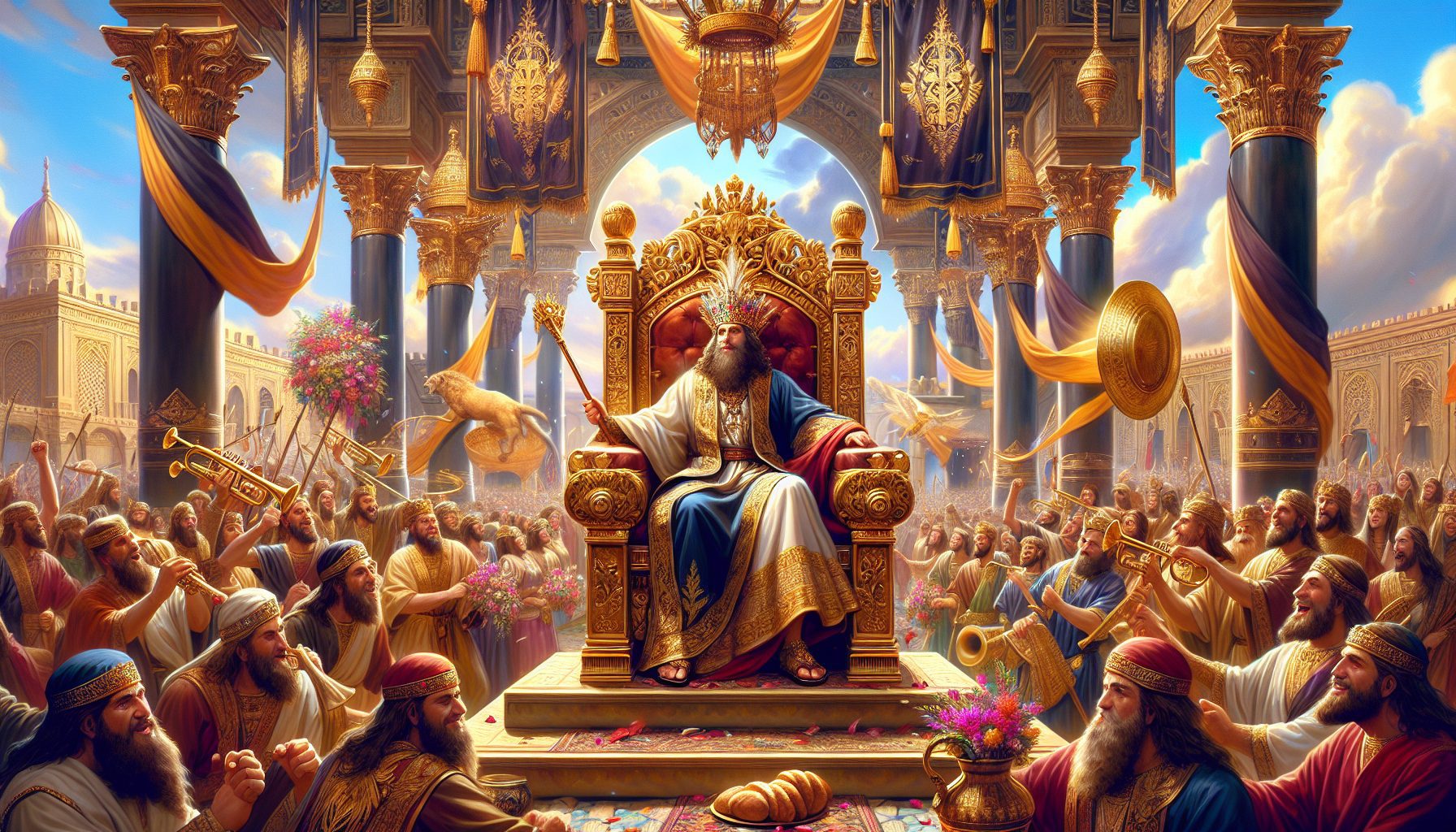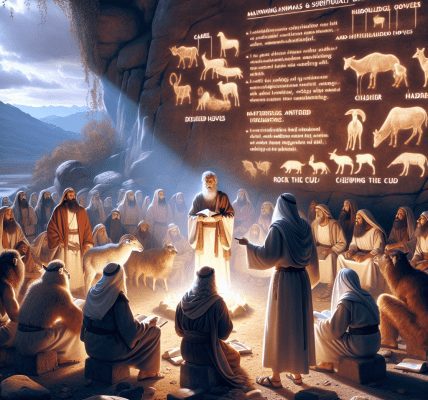**The Encounter in the Night: Nicodemus and the New Birth**
The city of Jerusalem lay quiet under the veil of night, its narrow streets hushed save for the occasional whisper of the wind through the olive trees. The golden glow of oil lamps flickered behind latticed windows, but one man moved through the shadows with careful steps, his heart heavy with questions. His name was Nicodemus, a Pharisee of great standing, a ruler of the Jews, a teacher of Israel—yet something stirred within him that his learning could not satisfy.
He had heard of the Rabbi from Galilee—Jesus of Nazareth—whose words carried authority unlike the scribes, whose hands healed the sick and whose presence drew multitudes. Nicodemus had witnessed the signs, the undeniable works of God, and he could no longer ignore the longing in his soul. But as a leader of the people, he could not risk being seen with this controversial figure by day. And so, under the cover of darkness, he sought the One who might hold the answers.
The house where Jesus lodged was humble, its courtyard bathed in silver moonlight. Nicodemus hesitated at the door, his fingers tightening around the folds of his robe. Before he could knock, a voice, calm and knowing, spoke from within.
*”Come in, Nicodemus.”*
Startled, the Pharisee stepped inside. There, seated near a low-burning lamp, was Jesus. His eyes held neither condemnation nor flattery, only a depth of understanding that seemed to pierce the very soul.
*”Rabbi,”* Nicodemus began, his voice measured, *”we know that You are a teacher come from God, for no one can do these signs that You do unless God is with him.”*
Jesus did not respond with thanks for the compliment. Instead, He looked intently at Nicodemus and spoke words that would echo through eternity:
*”Truly, truly, I say to you, unless one is born again, he cannot see the kingdom of God.”*
Nicodemus stiffened. *Born again?* The phrase made no sense. His mind, trained in the meticulous study of the Law, wrestled with the impossibility. *”How can a man be born when he is old?”* he asked. *”Can he enter a second time into his mother’s womb and be born?”*
A faint smile touched Jesus’ lips, not of mockery, but of patience. *”Truly, truly, I say to you, unless one is born of water and the Spirit, he cannot enter the kingdom of God. That which is born of the flesh is flesh, and that which is born of the Spirit is spirit.”*
The wind outside rustled the leaves, its sound whispering through the open window. Jesus gestured toward it. *”The wind blows where it wishes, and you hear its sound, but you do not know where it comes from or where it goes. So it is with everyone who is born of the Spirit.”*
Nicodemus exhaled slowly, his brow furrowed. *”How can these things be?”*
*”Are you the teacher of Israel and yet you do not understand these things?”* Jesus replied gently. *”Truly, truly, I say to you, we speak of what we know, and bear witness to what we have seen, but you do not receive our testimony. If I have told you earthly things and you do not believe, how will you believe if I tell you heavenly things?”*
Then, with a weight of divine revelation, Jesus spoke the words that would become the cornerstone of faith:
*”For God so loved the world, that He gave His only Son, that whoever believes in Him should not perish but have eternal life. For God did not send His Son into the world to condemn the world, but in order that the world might be saved through Him.”*
Nicodemus stood in stunned silence. The love of God, vast and unfathomable, had been laid bare before him. Salvation was not in the works of the Law, nor in the traditions of men, but in the Son given as a sacrifice.
*”Whoever believes in Him is not condemned,”* Jesus continued, *”but whoever does not believe is condemned already, because he has not believed in the name of the only Son of God. And this is the judgment: the light has come into the world, and people loved the darkness rather than the light because their works were evil.”*
At those words, Nicodemus felt the weight of his own secrecy—his night visit, his fear of being seen. Yet here was the Light of the World, offering him truth without reproach.
*”But whoever does what is true comes to the light,”* Jesus said, *”so that it may be clearly seen that his works have been carried out in God.”*
The conversation ended, but the words lingered in Nicodemus’ heart like a fire that could not be quenched. As he stepped back into the night, the darkness no longer felt like a hiding place, but a space between two worlds—the old life of rituals and shadows, and the new birth offered by the Son of God.
And though he did not yet understand fully, the seed had been planted. The teacher of Israel would never be the same.




